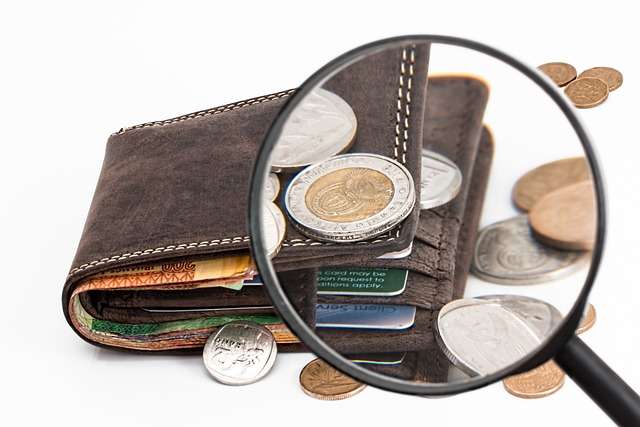
Introduction to Wedding Budgeting
Planning a wedding is exciting, but it’s no secret that costs can add up quickly. Without a clear budget, you may find yourself overspending or feeling financially strained. By creating a detailed wedding budget, you can plan the celebration of your dreams without breaking the bank.
Why Budgeting is Crucial for Weddings
Avoiding Financial Stress
A well-planned budget ensures you’re not overwhelmed by unexpected expenses, allowing you to enjoy your big day stress-free.
Making the Most of Your Money
Budgeting helps you allocate funds to the things that matter most, ensuring you get the best value for every dollar spent.
Ensuring Financial Stability After the Wedding
Starting married life without debt or financial strain sets the foundation for a secure future together.
Step-by-Step Guide to Wedding Budgeting
Step 1: Determine Your Total Budget
Start by deciding how much you’re willing and able to spend on your wedding.
- Factor in contributions: If family or friends are contributing, include these amounts in your total budget.
- Be realistic: Consider your savings, income, and any other financial commitments.
Step 2: Prioritize Your Must-Haves
Every couple has different priorities for their wedding. Identify the aspects most important to you.
- Key elements: Venue, catering, photography, and attire often take up the largest portions of the budget.
- Needs vs. wants: Splurge on what matters most and cut back on less critical areas.
Step 3: Research Costs
Understanding the average costs of wedding services will help you plan effectively.
- National averages: Research what similar weddings in your area cost in 2025.
- Regional variations: Keep in mind that prices can differ based on location.
Step 4: Break Down Your Budget by Category
Divide your budget into categories and assign percentages to each.
- Common categories:
- Venue: 30-40%
- Catering: 20-30%
- Photography/Videography: 10-15%
- Attire: 5-10%
- Decorations: 5-10%
- Entertainment: 5-10%
- Miscellaneous: 5-10%
Step 5: Track and Monitor Expenses
Keep a close eye on your spending throughout the planning process.
- Use apps: Tools like WeddingWire, The Knot, or Excel templates can simplify tracking.
- Contingency fund: Set aside 5-10% of your budget for unexpected expenses.
Step 6: Save Where You Can
Look for creative ways to cut costs without compromising quality.
- DIY projects: Consider making your own centerpieces, favors, or invitations.
- Non-traditional venues: Parks, backyards, or community halls can save you thousands.
- Digital invitations: Opt for eco-friendly and cost-effective e-vites.
Money-Saving Tips for Weddings in 2025
Consider Off-Peak Dates
Weddings held during weekdays, off-seasons, or less popular months can save you significantly on venue and vendor costs.
Trim the Guest List
Smaller weddings mean less spending on catering, seating, and favors. Invite only those closest to you.
Choose Budget-Friendly Venues
Instead of a traditional banquet hall, consider alternative venues like public gardens, libraries, or private homes.
Common Wedding Budgeting Mistakes to Avoid
Overlooking Hidden Costs
Don’t forget gratuities, setup fees, delivery charges, or taxes—they can quickly add up.
Not Keeping Track of Small Expenses
Little purchases like extra decorations or accessories can sneak up and blow your budget.
Forgetting Post-Wedding Expenses
Remember to budget for honeymoon costs, thank-you cards, or dress cleaning and preservation.
The Long-Term Benefits of Budgeting for Your Wedding
Starting Married Life Debt-Free
A thoughtfully planned budget ensures you won’t begin your marriage with financial burdens.
Reducing Financial Stress
Budgeting reduces anxiety, letting you focus on enjoying the day and celebrating with loved ones.
Allocating Savings Toward Future Goals
Money saved on the wedding can be used for a house, a dream honeymoon, or building an emergency fund.
Read More…
- How to Use the 50/30/20 Budget Rule for Financial Success
- How to Stick to Your Grocery Budget Without Compromising on Quality
FAQs About Wedding Budgeting in 2025
- What’s a realistic wedding budget for 2025?
A modest wedding can cost $10,000–$20,000, while more extravagant ones may exceed $50,000. It depends on your priorities and guest list. - How do I save money on a wedding without sacrificing quality?
Focus on your priorities, use DIY options, and take advantage of off-peak pricing. - Should I use credit cards for wedding expenses?
Only if you can pay off the balance immediately to avoid interest. Look for cards with cashback or rewards. - What are the most overlooked wedding expenses?
Gratuities, taxes, setup fees, and dress alterations are commonly missed. - Is it possible to have a great wedding on a small budget?
Absolutely! Small, intimate weddings with personal touches often feel more meaningful and memorable.
